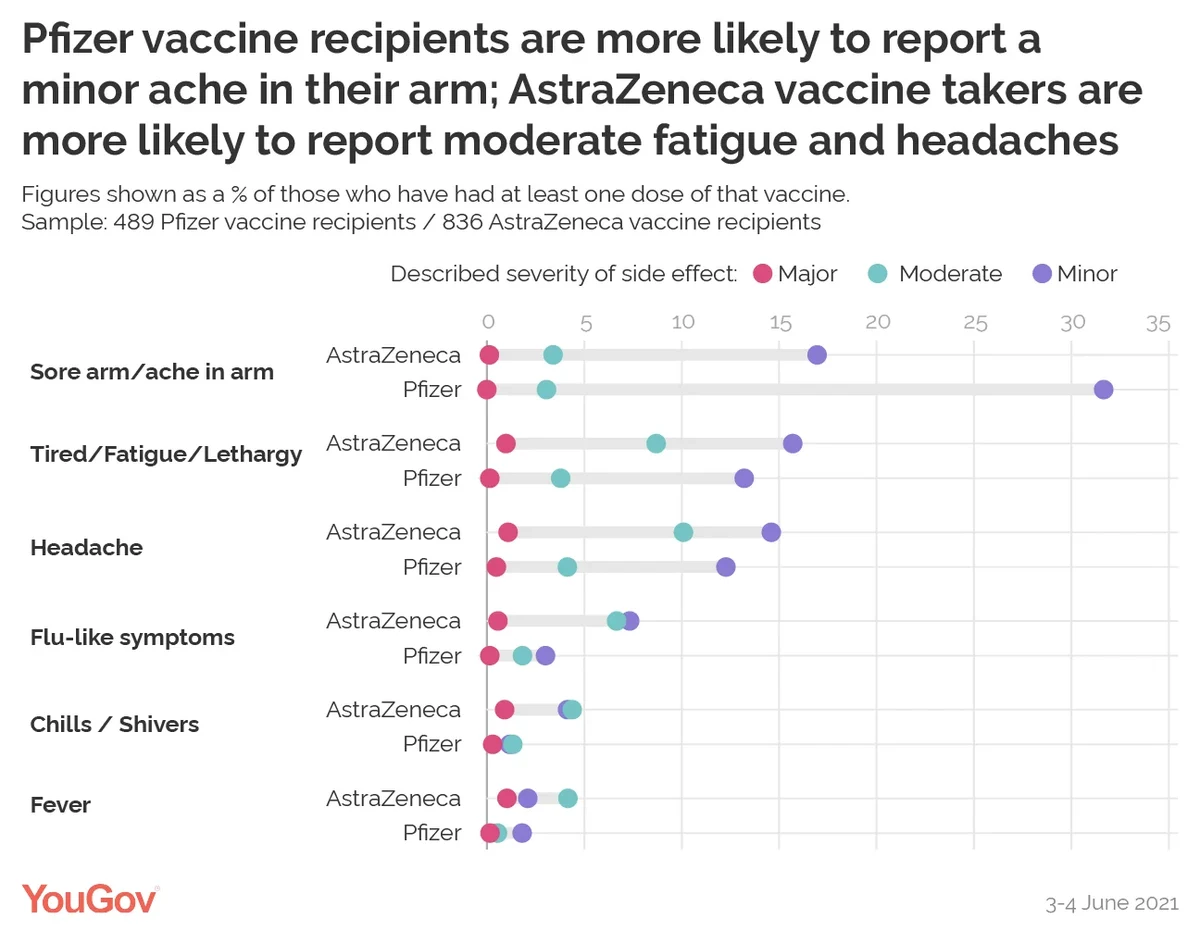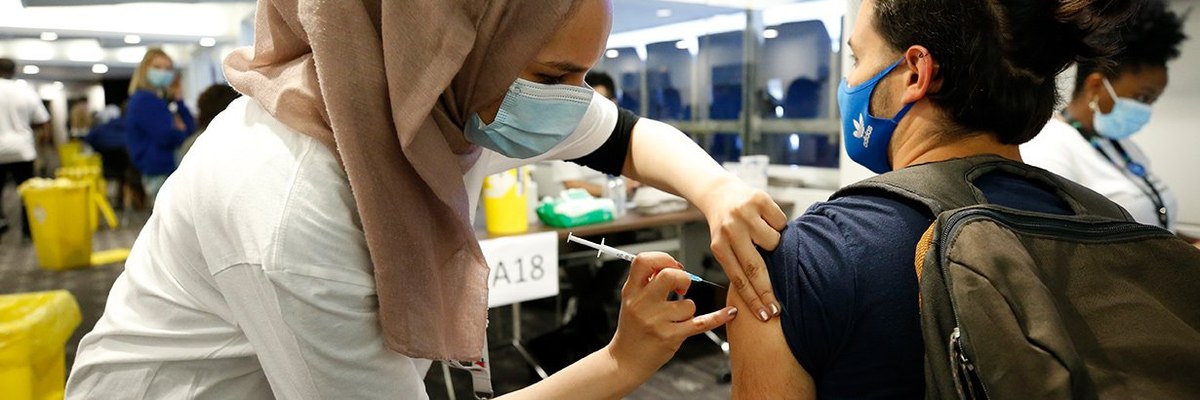Four in ten vaccine recipients report no side effects at all
As the coronavirus vaccination programme continues apace, a YouGov survey conducted on 3-4 June recorded that 78% of Britons had by then received at least one vaccine shot.
We asked respondents whether, for each dose of the vaccine they had received, they had experienced any side effects, and if so, what they were and how serious they considered them to be.
Overall, four in ten who have received the vaccine (41%) say they have not had any side effects any time they had the vaccine. Another four in ten (38%) reported that they had only experienced “minor” side effects at worst. One in five (19%) described their most serious side effect as being “moderate”, while just 2% said they had suffered a “major” side effect.
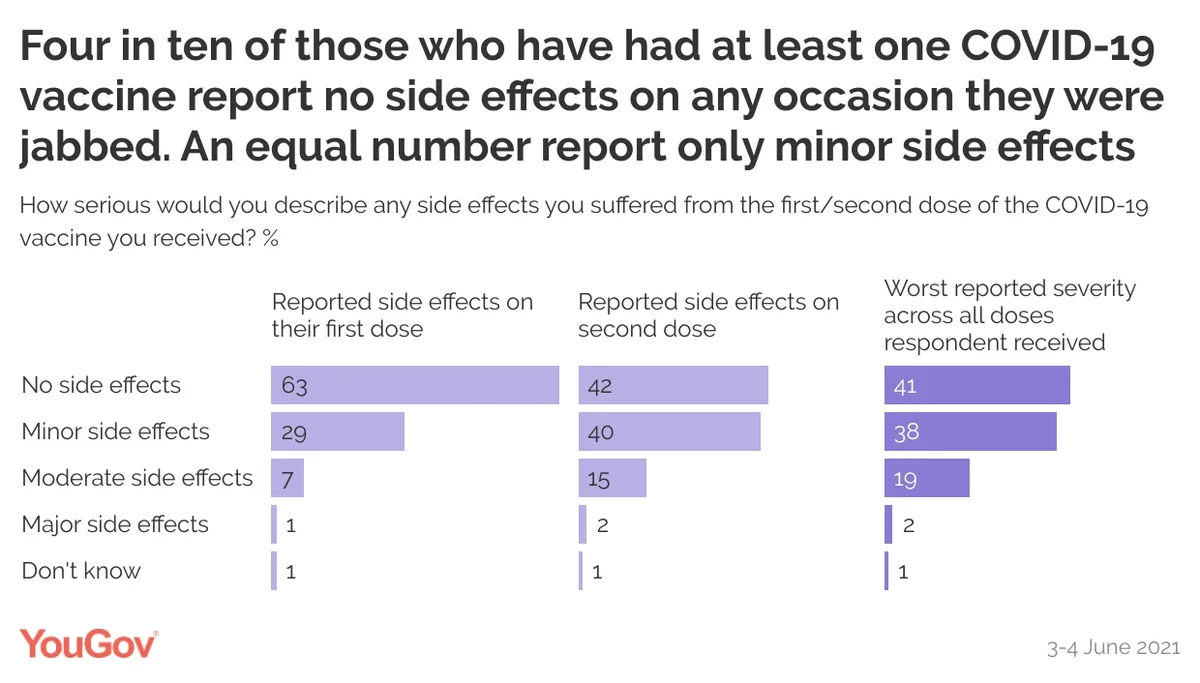
What side effects did people have?
As well as asking whether their side effects had been minor, major or moderate, YouGov also asked vaccinated Britons to list the specific side effects they had experienced that they were describing as such.
By far the most commonly reported side effect is a simple ache in the arm or around the injection site. Overall, 25% of people who have received the vaccine reported experiencing this side effect. In the vast majority of these cases, respondents branded it a ‘minor’ side effect.
Other common side effects have been feelings of tiredness, fatigue, or lethargy (21%) and headaches (20%). These side effects were more frequently labelled as being of ‘moderate’ severity compared to recipients who had sore arms – while 14% who have had the vaccine had a minor case of tiredness, 7% had a moderate one. Likewise, while 13% had a headache they described as minor, 8% had one they describe as moderate.
A further 10% of those who have had the vaccine report having had flu- or cold-like symptoms (6% describing it as a minor side effect, 5% as a moderate one).
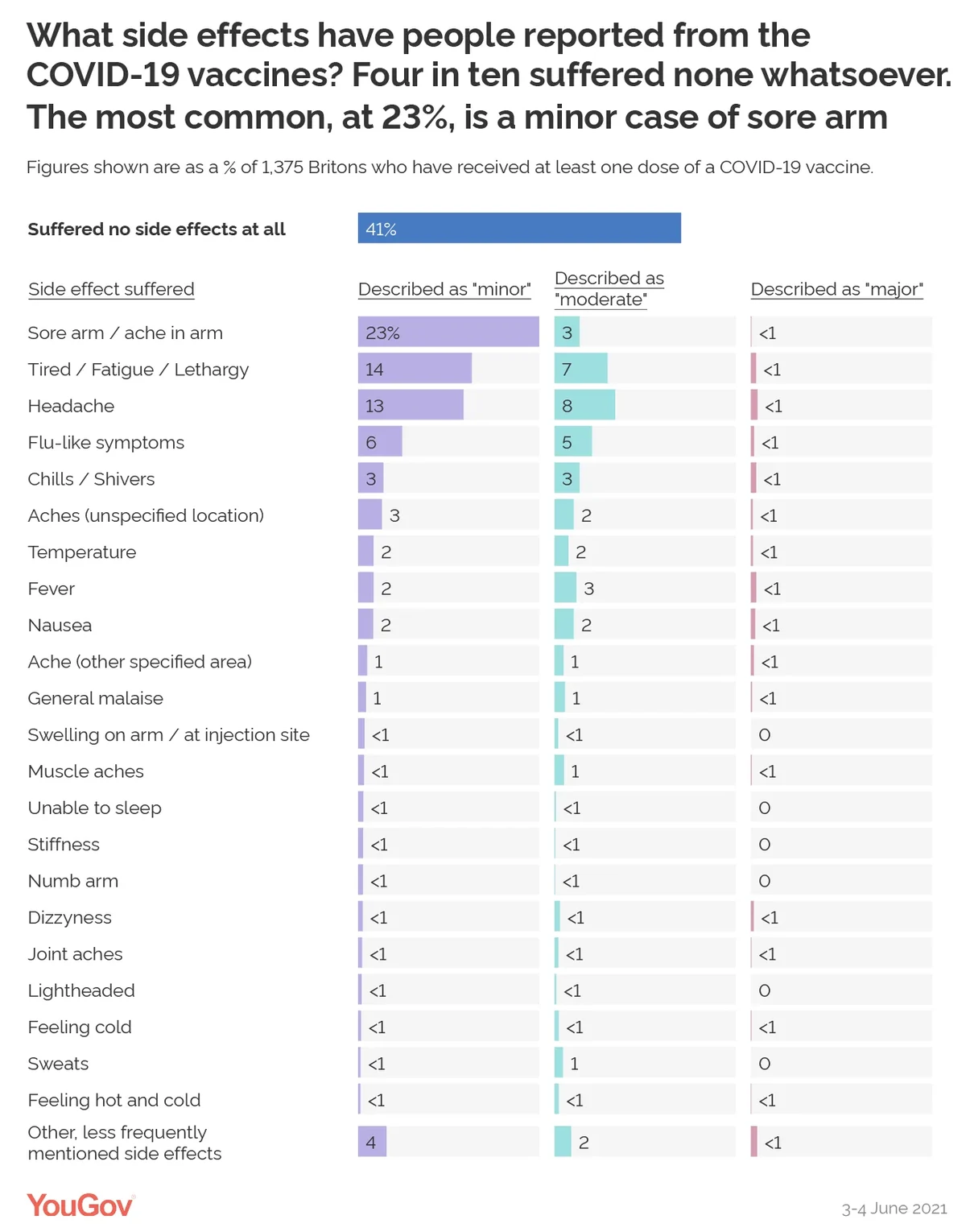
Of those side effects described as “major”, they were most likely to manifest as headaches, fever, chills, fatigue or nausea. In each case, only a fraction of a percent of vaccinated Britons reported these side effects at this level of severity.
Side effect differences between the AstraZeneca and Pfizer vaccines
The results show that people who received the AstraZeneca vaccine are more likely to report experiencing side effects than those who received the Pfizer vaccine. Across all doses, 36% of those who had at least one AZ jab reported never having a side effect, compared to 46% of Pfizer recipients.
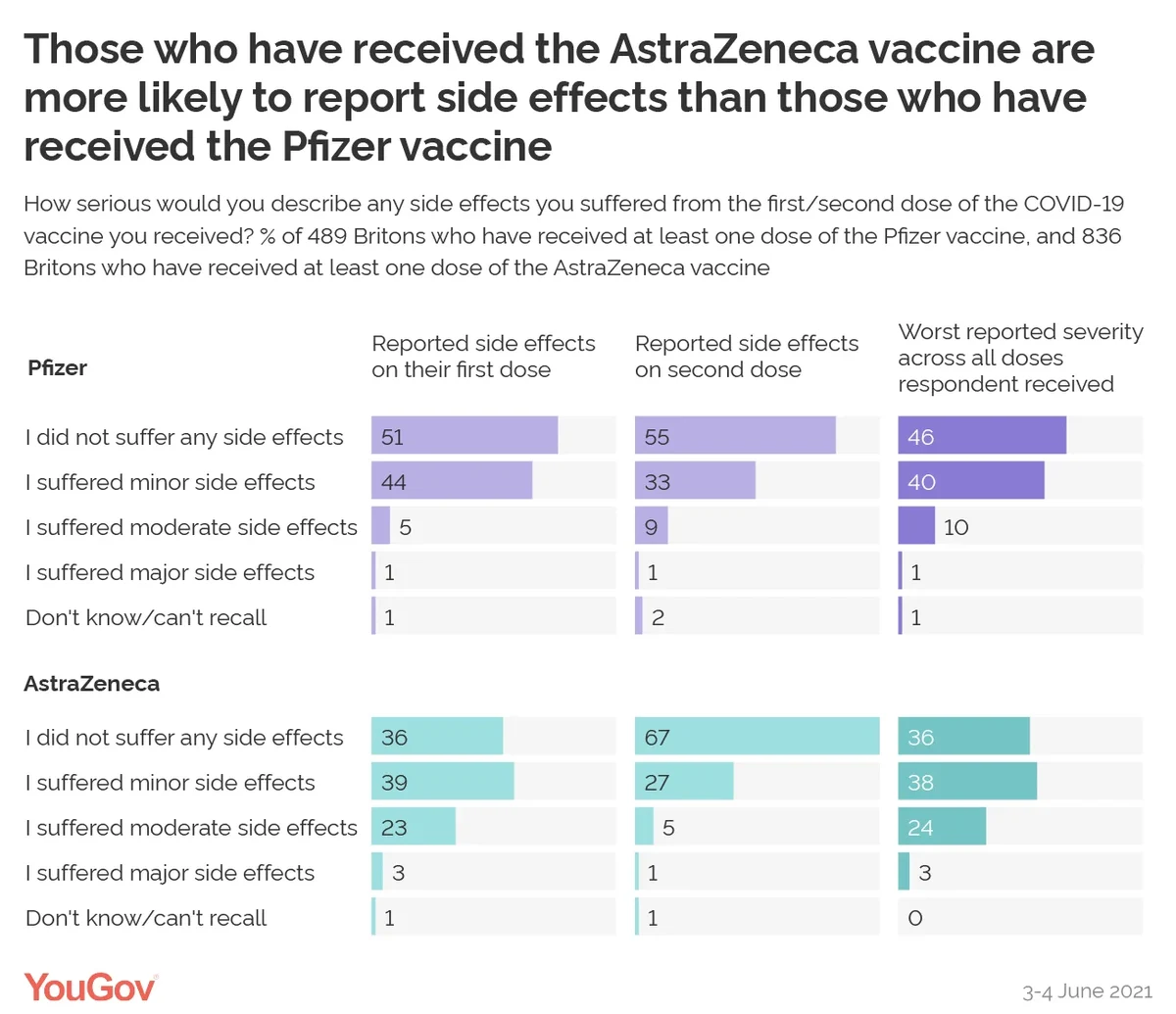
While both groups are about equally as likely to say the worst they suffered was a minor side effect (40% of Pfizer receivers, 38% for AstraZeneca), people who have had the AstraZeneca vaccine are more likely to say they have suffered ‘moderate’ side effects (24% vs 10%).
Only 3% of those who took the AstraZeneca vaccine experienced what they described as a ‘major’ side effect, as did 1% of Pfizer vaccine recipients.
It is worth noting that AstraZeneca recipients are substantially more likely to say they didn’t suffer any side effects on their second jab (67%) than on their first (36%). Among those who have had a Pfizer vaccine, these figures are much more consistent (51% on the first dose, 55% for second doses).
When it comes to the specific side effects experienced, those who have received the AstraZeneca vaccine are substantially less likely to report suffering from a minor sore/aching arm from the injection (17%, compared to 32% of Pfizer recipients).
AstraZeneca vaccine recipients are, however, slightly more likely to report moderately severe headaches (10% experienced this), fatigue (9%), flu-like symptoms (7%) and fever (4%). In each case, this was 4-6 percentage points higher than among Pfizer vaccine recipients.
